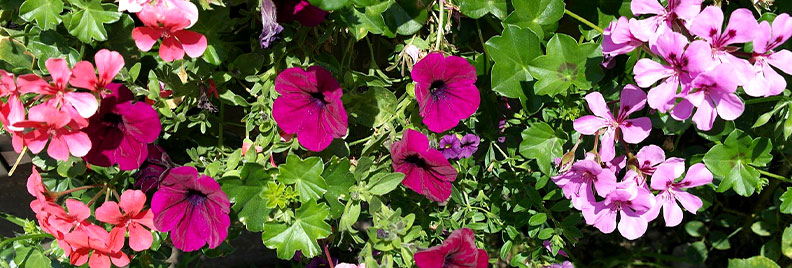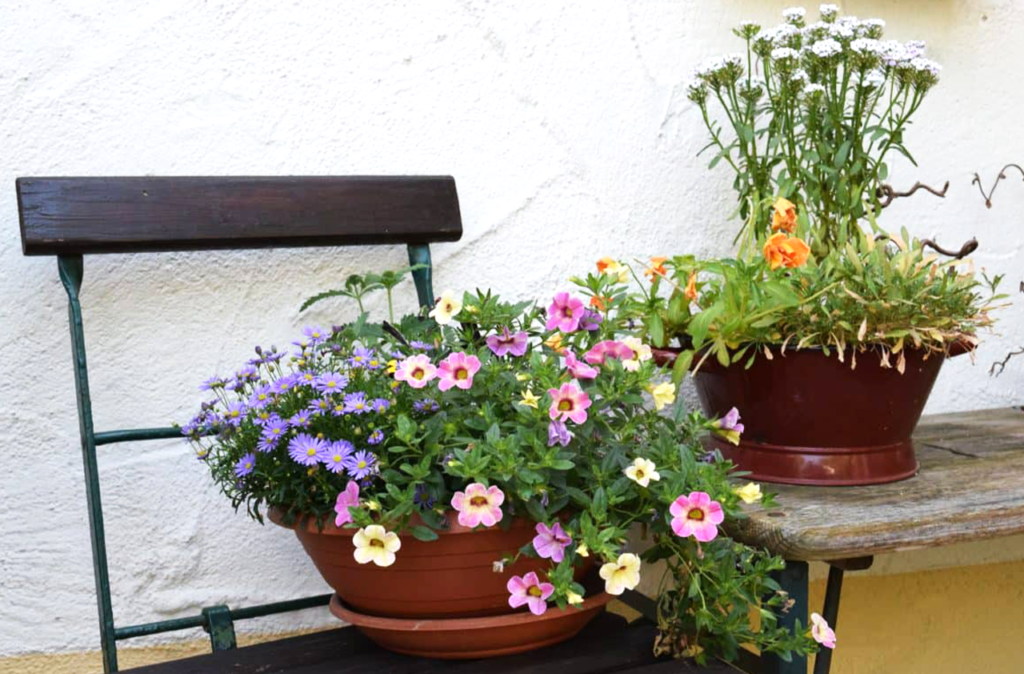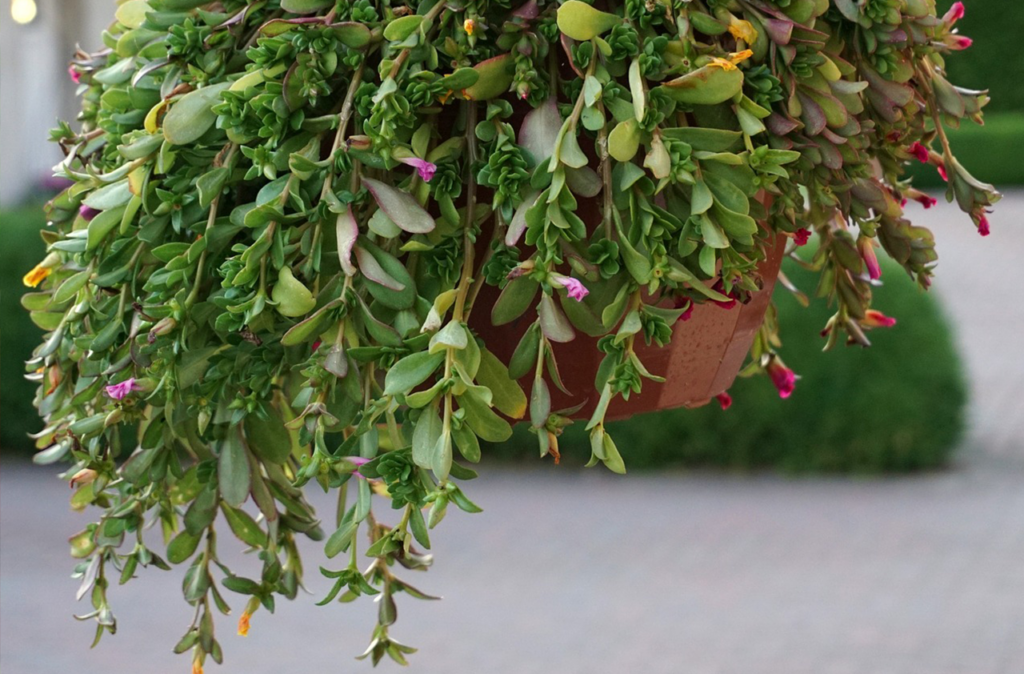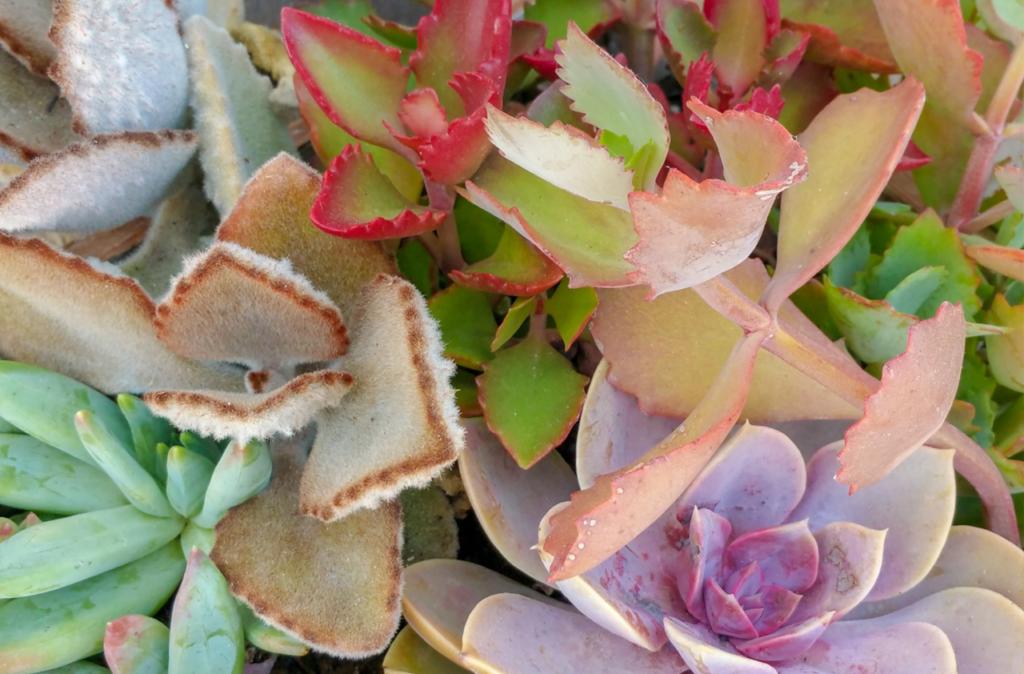
Container Gardening 104: Compatibility
The Container Gardening Battledome
Aggressive Container Garden Plants
Assertive Plants for Garden Pots
Passive Plants in Garden Planters
When it comes to assembling a container garden full of different colorful plants and flowers, there are a few important things to consider. Your plant selections should be based on more than just aesthetics and color schemes— you need to consider if your chosen plants are actually compatible with each other. This doesn’t just mean picking plants that have similar water and sunlight requirements (although that is important, too).
At first glance, your container garden might seem calm and serene, but the truth is, your plants may be secretly fighting a ruthless battle against the others. Choosing the right plants to place together in a pot will give all your plants a fair shot, instead of setting up the non-confrontationalists for getting pummelled by bullies.
The Container Gardening Battledome

Think of your garden like a zoo. If you were going to put a mix of animals in an enclosure, you wouldn’t want to put the baby seals in with the polar bears—things would get ugly pretty fast. Instead, the seals would be better off in an enclosure with some pelicans, since they can co-exist peacefully without posing a threat to the other. Container gardening is pretty much the same formula! Pair plants with other plants of similar strength or aggression and supervise them to make sure none of them tries to dominate the container. They’re all fighting for the resources they need — water, soil nutrients, and sunlight — but some are much more willing to get scrappy and push the little guys out of the way so they can hoard all the wealth.
There are three categories of container plants: the aggressive plants, the assertive plants, and the passive plants. Obviously, the aggressive plants and the passive plants aren’t destined to be best buddies, so those guys shouldn’t get paired up. Assertive plants, however, are a little more flexible. If you put an assertive plant in with an aggressive plant, there’s still gonna be a little bit of a power struggle between the two. But with some regular pruning and maintenance, you can make sure the aggressive plant doesn’t conquer the container.
Alternately, if you put an assertive plant in with a passive plant, the assertive plant might take over if left totally unattended, but some occasional intervention with a set of garden shears or scissors should keep things under control.
Aggressive Container Garden Plants
Most aggressive plants are annuals because they’re bred to grow strong and fast during a limited growing season, spreading as much as they can. They may look dainty, but make no mistake— these plants are total warriors:
- Tropical or annual vines, like ivy, clematis or potato vine.
- Hybrids and designer annuals, like Cora cascade vinca, Mexican zinnia, and trailing torenia.
- Ornamental grasses


Assertive Plants for Garden Pots
Assertive plants are a nice happy medium as far as aggression goes. These steady growers aren’t set on world domination, but they also won’t stand idly by if others are competing for container space:
- Herbs, like oregano, rosemary and basil
- Most edible plants, such as patio tomatoes and eggplant
- Classic annuals, like vinca, zinnias, and caladiums
- Most perennials
Passive Plants in Garden Planters
These slow-growing plants are lovers, not fighters. Usually, if you want to keep them past one year, you’ll need to bring them inside for overwintering. If you want to keep your passive plants safe and healthy, don’t plant them with aggressive growers or they’ll get starved out. Some popular passive container plants include:
- Cacti and succulents
- Common houseplants, like orchids, bromeliads and crotons
- Tiny ferns, pileas, mosses, and other terrarium plants

To make sure your garden plant pots don’t turn into a gladiator arena, try to pair up plants with similar attitudes and behaviors that will get along. Who knew garden flowers were so cliquey? So long as you keep the tough jocks in one container, and the sensitive drama geeks in a separate container, you won’t have to break up as many fights.
